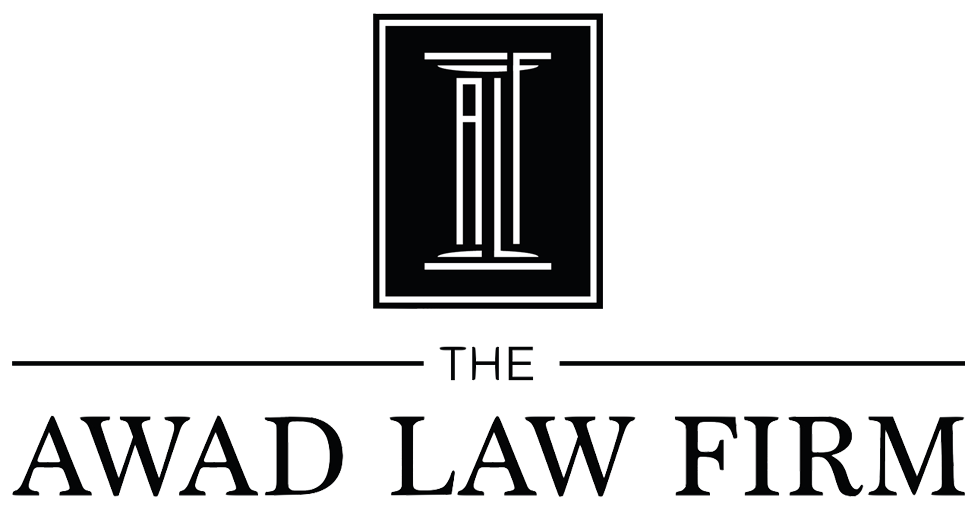When you’re faced with a lowball offer from an insurance company, it’s important to respond with a clear strategy. The Awad Law Firm follows a methodical approach to counter these offers, ensuring our clients get the compensation they deserve.
Here’s the exact technique we use, step-by-step, to effectively respond to an insurance company’s lowball offer.
1. Confirm the Insurance Adjuster Has All the Medical Bills
Before diving into negotiations or discussing the offer itself, the first thing you need to do is make sure the insurance adjuster has all the medical bills you’ve incurred. Many times, insurance companies miss some of the bills or don’t have them in their system, which can impact their valuation of your case.
Action Item:
Ask the adjuster: “Can you confirm that you have all of the medical bills we’ve submitted? I have $17,434. Is that the total amount you have?”
If they say no, then send the missing bills again. If they confirm that they have all the documents, proceed to the next step.
2. Verify the Policy Limits
Ensure that the adjuster is still working with the correct amount in the insurance policy. It’s important to confirm the policy limits and verify that the demand you submitted aligns with those limits.
Action Item:
Ask the adjuster: “Can you confirm that the total policy is still $25,000 and that it hasn’t been depleted due to previous claims?”
If they say that another payout has been made, meaning the policy is no longer $25,000, resubmit your demand based on the actual available policy amount.
3. Confirm Liability Has Been Fully Accepted
You need to confirm that the insurance company has accepted 100% liability for the incident. However, insurance adjusters may hesitate to state this explicitly, so it’s important to ask the question correctly.
Action Item:
Ask the adjuster: “I just want to make sure there’s no allocation of fault on my behalf, is there?”
By phrasing it this way, you avoid putting the adjuster on the spot by directly asking about “100% liability,” but you can still confirm that they’re not assigning any fault to you. If they say there’s any allocation of fault on your part, follow up and ask them how they came to that conclusion.
4. Address Disputes Regarding Your Injuries
A common strategy from adjusters is to question whether your injuries were actually caused by the accident. They may try to argue that your injuries (like soft tissue injuries) were pre-existing or not caused by the crash.
Action Items:
- First, ask about the neck injury:
Ask the adjuster: “Is there any dispute regarding my personal neck injury and whether it was caused by the crash?” If the adjuster responds by downplaying the injury, push back:
Respond: “Are you suggesting that it was a pain-free experience?” - Next, move on to the back injury:
Ask the adjuster: “Is there any dispute regarding my low back injury and whether it was caused by the crash?”
If the adjuster questions the severity of a herniated disc or disc bulge, you can respond with medical terminology to clarify the issue.
Example Response:
“The MRI report indicates a herniation superimposed on a disc bulge at the L4-L5 level. While the bulging discs may be part of natural aging, the herniation is a direct result of the recent traumatic event.”
This level of medical detail can help counter an adjuster who may try to minimize the severity of the injury.
5. Push Back on “Usual and Customary” Bill Reductions
It’s common for adjusters to reduce medical bills by claiming they’ve been adjusted to “reasonable and customary” amounts based on Medicare rates. But if you’re not a Medicare recipient, those rates don’t apply to you.
Action Items:
- Ask about the reduction:
Ask the adjuster: “Which data points did you use to determine these bills are unreasonable?” - Response to Medicare-based reductions:
Respond: “I’m not eligible for Medicare, so Medicare pricing is irrelevant in my case.”
The insurance company often uses Medicare rates as a benchmark, but these are not appropriate if you’re not a Medicare recipient. They might be seeking a “discounted justice,” so push back and explain that these Medicare-based reductions don’t apply.
6. Questioning Causation of Injury
Another tactic insurance companies use is to claim uncertainty over whether the injuries were actually caused by the accident. Your goal here is to demonstrate that the medical evidence strongly supports the causation.
Action Items:
- Ask about the causation of the injury:
Ask the adjuster: “What credentials do you have to make that assessment?” - If the adjuster relies on a nurse or lower-level medical personnel:
Respond: “Our medical records include assessments from multiple professionals: a chiropractor, a physical therapist, an orthopedic surgeon, and a radiologist, all of whom have confirmed that the injuries were caused by the accident.” - If they mention that a nurse reviewed the file:
Respond: “Are you suggesting that a nurse’s opinion is equivalent to the expertise of a medical doctor?”
Make sure the adjuster acknowledges the credibility of the medical professionals who’ve documented your injuries.
7. Do Not Offer a Counter Verbally
In the midst of the negotiation, resist the temptation to verbally counter the insurance company’s offer. All negotiation should be done in writing, not over the phone.
Important Reminder:
💡 Never make a verbal counteroffer like, “I’m thinking about accepting $20,000.” Negotiating on the spot during a call can hurt your position.
Instead, get the adjuster’s position in writing and ensure you have a documented record of their offer and stance before responding.
Bonus Tip: Record the Conversation (If Legal)
If you’re in a state that allows you to record calls without the other party’s consent, it’s a good idea to record all your conversations with insurance adjusters. This will help you keep track of their position, which can be useful in the next steps of negotiation.
By following these steps, you’ll be in a much stronger position to negotiate a fair settlement. Remember, patience is key during the negotiation process, and don’t be afraid to push back when necessary.
Real-Life Story: State Farm Denies a Legitimate Claim with a Lowball Offer
In a recent case, a homeowner filed a claim with State Farm after their roof was severely damaged. However, when the insurance adjuster assessed the situation, they claimed the damage was “repairable.” The roofer, who had inspected the roof, explained that it was not possible to repair the damage and that the roof needed to be replaced. Despite this clear, professional assessment, the adjuster insisted that the roofer wasn’t doing his job correctly, stating that he had been too rough and that this had caused the tiles to break.

The roofer, frustrated by the situation, confronted the adjuster, presenting irrefutable evidence that the tiles were not pliable and that the roof could not be salvaged. But even in the face of this clear evidence, the adjuster refused to acknowledge the damage and continued to insist that the roof could still be repaired.
This is a prime example of how insurance companies like State Farm can deny legitimate claims, often choosing to prioritize their profits over the well-being of policyholders. Unfortunately, this kind of rhetoric and manipulation is all too common, not only with State Farm but also with other insurers, such as Allstate, who are known for offering lowball settlements and denying rightful claims.
If insurance companies did the right thing, there would be no need for insurance accountability lawyers like myself. But when faced with such unjust practices, it’s crucial to have the right knowledge and legal support to counter these lowball offers and ensure that your claim is properly handled.
If you need help handling a lowball offer or navigating the negotiation process, feel free to reach out to us.
Contact us today for a free consultation and let us help you navigate the complexities of insurance claims. Whether you’re in Atlanta, Marietta, Dalton, or surrounding areas in Georgia, we’re here to advocate on your behalf!



